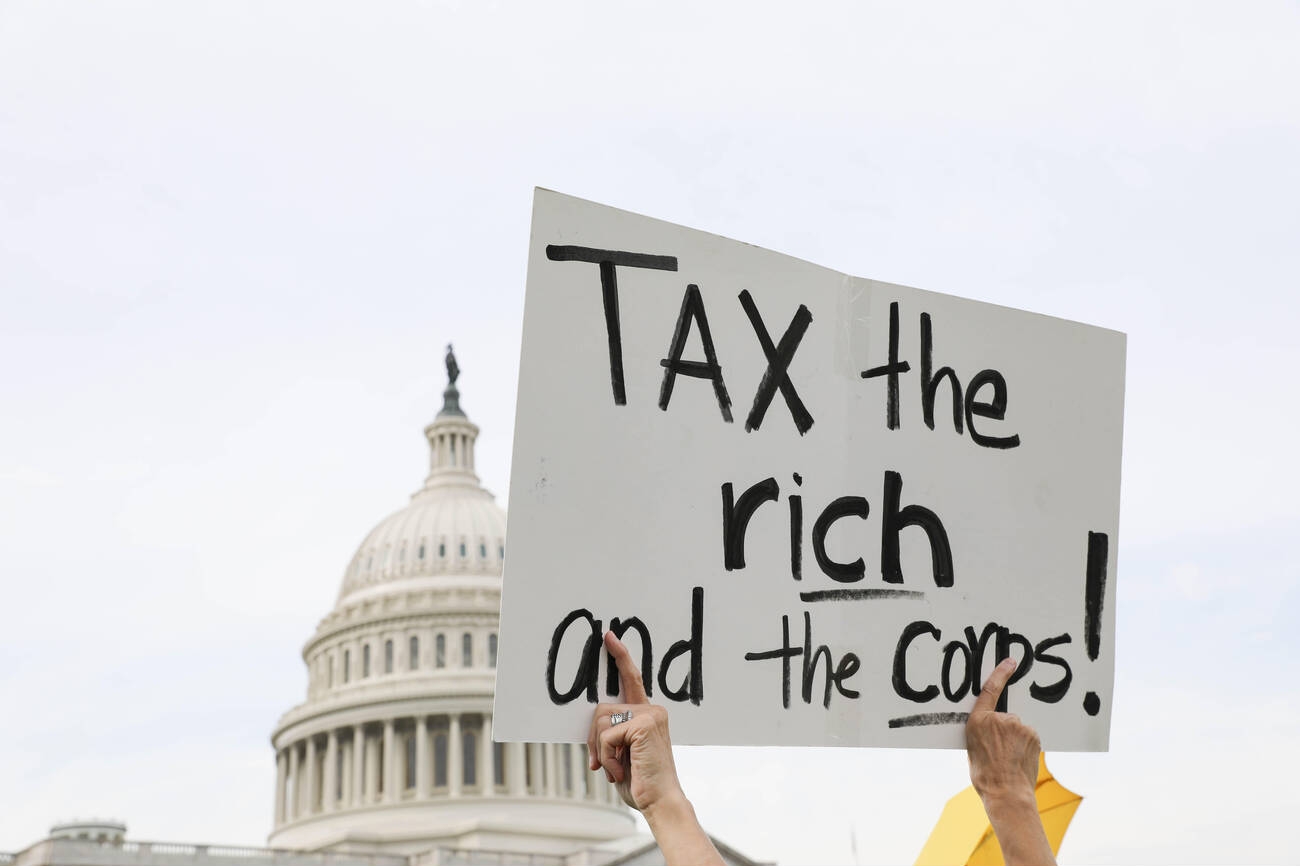By Laura Davison, Bloomberg News (TNS)
The progressive rallying cry of “tax the rich” has morphed into a popular policy stance with voters in the key states that will decide the 2024 election, enjoying support even among those who prefer billionaire Donald Trump, according to the latest Bloomberg News/Morning Consult poll.
Fully 69% of registered voters in seven swing states say they favor higher taxes on billionaires, and they support higher income taxes on people who make more than $400,000 a year by the same margin, a potential boon to Democratic President Joe Biden’s economic agenda if he wins a second term.
Biden is proposing a new tax to squeeze more from America’s richest families. That’s in addition to his plan to raise the 21% corporate rate, which 51% of swing-state voters backed in the poll conducted March 8-15.
The strong support for more taxes on billionaires shows up across party lines in the survey with 58% of Republicans, 83% of Democrats and 66% of independents approving of the idea.
“It seems that everybody is for taxing the rich. This is a good populist issue for the Biden campaign,” said Eli Yokley, U.S. politics analyst for Morning Consult. The notion that Trump voters back higher taxes on the wealthy and super-rich, “could give him some leeway with Congress when it comes to extending the Trump tax cuts.”
The preference for taxing billionaires, which Senator Elizabeth Warren helped popularize during her 2020 presidential campaign, has grown in recent years from a fringe, left-wing wish-list item to a centerpiece of Biden’s economic policy.
While voters support higher income and corporate taxes, it’s Trump whom poll respondents say they trust more to handle tax policy, with the former president leading Biden 47% to 35% across the seven states surveyed.
The presumptive Republican nominee, in contrast, is proposing “the biggest tax cuts,” but has yet to delve into the specifics of a plan.
Trump has said he would help bring in more revenue to the U.S. government through higher tariffs on imports, rather than additional levies on taxpayers. However, many economists argue that households will end up paying the tariff in the form of higher prices.
Still, just about half of swing-state voters like Trump’s idea of a 10% universal tariff on all imports and a 60% levy on products from China, the poll found. A quarter of respondents opposed the tariffs.
The support for populist-inspired tax policy could also weigh on debates in Congress next year, no matter who wins the election, when lawmakers will be faced with a choice to extend Trump’s 2017 tax cuts for individuals and privately owned businesses or let them lapse.
Only 32% of poll respondents said they support letting those tax cuts expire as scheduled at the end of 2025. But extending those reductions—which will cost trillions of dollars—will likely mean a protracted negotiation in Washington over whether to preserve tax cuts for the richest households, how to offset the cost and will open the door for other tax changes.
One idea that is likely to be a key tension point in Congress is whether to increase the $10,000 cap on state and local tax, or SALT, deduction. Trump’s 2017 law limited the tax break, which is primarily beneficial to people living in high-tax areas like New York and California.
Some 42% of poll respondents approve of increasing the amount of the deduction, a goal of many Democrats in Congress, even though only about 11% of households are eligible to claim the deduction. That suggests many people who don’t personally benefit from the SALT write-off support expanding it.
Methodology: The Bloomberg News/Morning Consult poll surveyed 4,932 registered voters in seven swing states: 796 registered voters in Arizona, 788 in Georgia, 698 in Michigan, 447 in Nevada, 699 in North Carolina, 807 in Pennsylvania and 697 in Wisconsin. The surveys were conducted online beginning March 8, and concluded March 14 in Arizona and Wisconsin, March 15 in Nevada, and March 12 in the remaining states. The aggregated data across the seven swing states were weighted to approximate a target sample of swing-state registered voters based on gender, age, race/ethnicity, marital status, home ownership, 2020 presidential vote and state. State-level data were weighted to approximate a target sample of registered voters in the respective state based on gender, age, race/ethnicity, marital status, home ownership, and 2020 presidential vote. The margin of error is plus or minus 1 percentage point across the seven states; 3 percentage points in Arizona, Georgia and Pennsylvania; 4 percentage points in Michigan, North Carolina, and Wisconsin, and 5 percentage points in Nevada.
______
©2024 Bloomberg L.P. Visit bloomberg.com. Distributed by Tribune Content Agency LLC.
Thanks for reading CPA Practice Advisor!
Subscribe Already registered? Log In
Need more information? Read the FAQs





Comments: 1